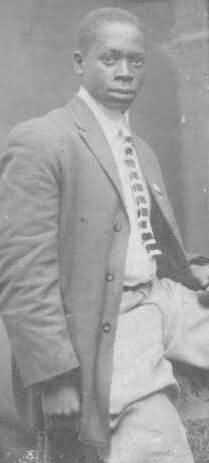10 Nov
2015
Remembering a Veteran – Ned Felder
 In January 1918 Ned Felder, on the word of a white spectator, was collared, kicked, jailed, and fined for “disloyal talk” towards white troops. This event occurs at the start of the US mobilization for the war. so, Ned hadn’t yet gone to Europe–neither have the marching troops he supposedly disparaged. By April, Ned had entered the 92nd Infantry Division to fight America’s enemies and prove his worth as a citizen. But he soon learned that even though he put on his country’s uniform, he was still regarded as just another Negro – a second class American. Ned had hopes and aspirations; he lived a few troubled years; and then died in despair.
In January 1918 Ned Felder, on the word of a white spectator, was collared, kicked, jailed, and fined for “disloyal talk” towards white troops. This event occurs at the start of the US mobilization for the war. so, Ned hadn’t yet gone to Europe–neither have the marching troops he supposedly disparaged. By April, Ned had entered the 92nd Infantry Division to fight America’s enemies and prove his worth as a citizen. But he soon learned that even though he put on his country’s uniform, he was still regarded as just another Negro – a second class American. Ned had hopes and aspirations; he lived a few troubled years; and then died in despair. “The world must be made safe for democracy,” President Wilson said. Negroes thought it would be hypocritical, for the country to fight for democracy in Europe while they remained second-class citizens. Ned and over one million other Negroes responded. In fact, black male participation in WWI in Florida was higher than white enlistment. Over 200,000 Negroes fought with the American Expeditionary Force (AEF) in France. Negro units fought with the French Army; none fought alongside white American troops.
Whites were instructed to avoid contact with the colored troops. In a message from General John J. Pershing, commander of the AEF in Europe to the French military, Pershing instructed the French that “We must not eat with them, must not shake hands with them, seek to talk to them or to meet with them outside the requirements of military service. We must not commend too highly these troops, especially in front of white Americans”
Ned’s 367th Infantry was cited for bravery and awarded the distinguished French Croix de Guerre. Overseas they learned skilled trades and hoped for better jobs; but skilled jobs were closed to Negroes when they arrived back home.
After WWI Ned married. Their only child, my mom, remembered “we won the war, but lost the man.” Records from Florida State Hospital for the Insane in Chattahoochee, Florida describe a Bi-Polar man with “Manic Depressive Psychosis.”
In September 1933 he was transferred to the Tuskegee VA Medical Center. The facility was fully staffed by whites. His file records betray him as an agitator who “requires restraint to control him.” He died in Tuskegee on Feb. 4, 1939.
Bipolar or PTSD, can onset from severe stress. Those with the disorder can have a “precipitating event” that sets it off. I believe the brutality of combat, the build-up of expectations, and returning to Jim Crow qualifies as a “precipitating event.” Then called “shellshock,” PTSD is a psychiatric injury.
There is little honor for these men. Little is said of the sacrifice of colored troops. Ned Felder was many things – a railroad fireman, a waiter, an auto-mechanic, a soldier and ultimately an inmate. He is buried at Bay Pines National Cemetery, in St. Petersburg, Florida. He was my grandfather. Men like Ned, did not end well. They lived lives of oppression and fought for respect.
Ned’s experience was reflective of what other colored troops were going through. They had known equality with the French but back home they were fighting for respect. Instead of receiving proper care, like Ned, many endured the trauma of electric shock therapy “treatments.” In addition, shellshock, racism, oppression, and terrorism made life hard or them, but this is largely un-noted in post WWI narratives. Let’s remember them as we reflect this Veteran’s Day.




